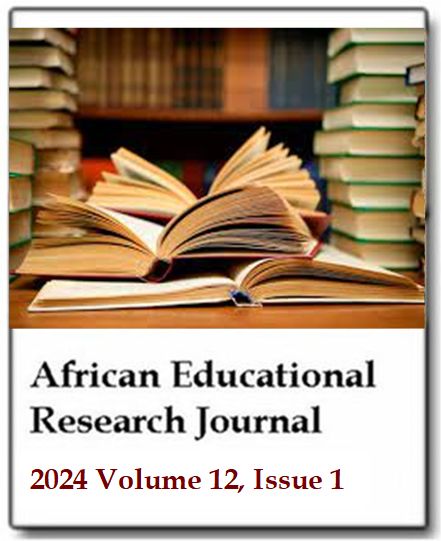Correlation between end-weight principle and adjective clauses in English: Q1 SCOPUS applied linguistics articles and Thai EFL learners’ essays
Abhinan WongkittipornAfrican Educational Research Journal
Published: March 26 2024
Volume 12, Issue 1
Pages 67-77
DOI: https://doi.org/10.30918/AERJ.121.24.016
Abstract
The researcher in this study applied the notions of quantitative method, theoretical linguistics and applied linguistics to examine the correlation between the linguistic theory of end-weight principle and English adjective clauses in Q1-SCOPUS applied linguistics articles and Thai EFL learners’ descriptive essays. The significance of this study is that structure and use in writing should be learned simultaneously. This current study also innovatively supports Thai EFL learners to examine their linguistic competence in structuring information in their English writing. The data collection in this study was divided into two datasets. The first dataset was 20 Q1-SCOPUS applied linguistics articles published between 2022 and 2024. Approximately 200,000 words provided 117 sentences containing adjective clauses in the final position or VP-postmodifiers. On the other hand, the second dataset was 67 descriptive essays written by Thai EFL high-school learners from both public schools and private schools under the supervision of the Ministry of Education, Thailand. The original theory of the end-weight principle proposed by Quirk et al. (1972) is followed in this study. The syntactic structure of adjective clauses follows Radford (2009) who analyzed adjective clauses as complementizer phrases (CP). The inferential statistical analysis of correlation follows SPSS 29. The results showed that there was a statistically significant relationship between the datasets of applied linguistics articles and EFL learners’ descriptive essays where the p-values were reported at 0.01 and 0.02, respectively. Not only do these statistical relationships show that English is an end-weight language, but also Thai EFL learners can follow the norm accurately. This is due to the positive effect of the mother tongue interference since the Thai language is an end-weight language. The pedagogical implication of the study to EFL learners is that information structures should be contributed to grammar classes. For future studies, it is recommended to test the hypothesis of the end-weight principle with reduced adjective clauses in the medial position of sentences.
Keywords: Adjective clauses, applied linguistics articles, descriptive essays, end-weight principle, Thai EFL learners.
Full Text PDFThis article is published under the terms of the Creative Commons Attribution License 4.0

